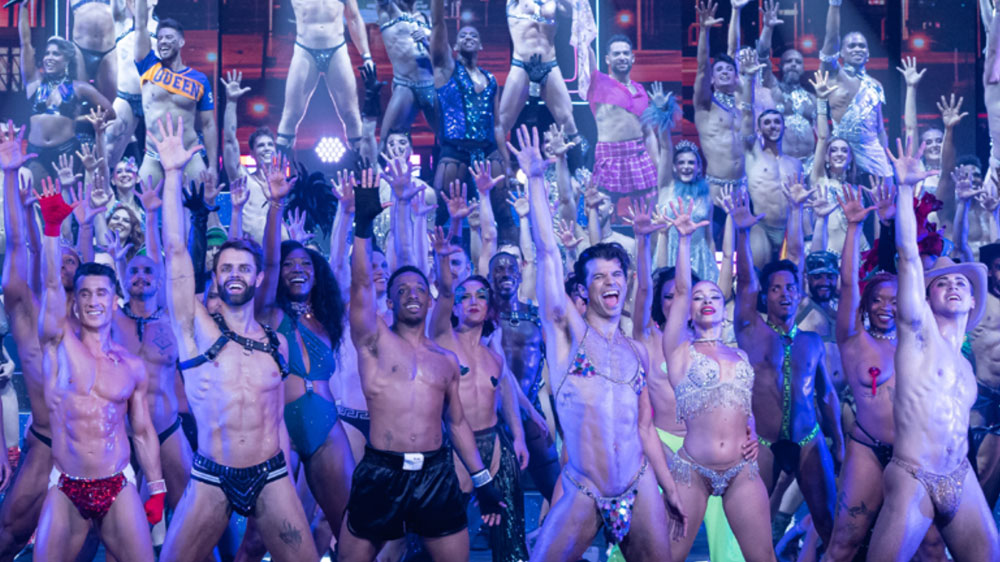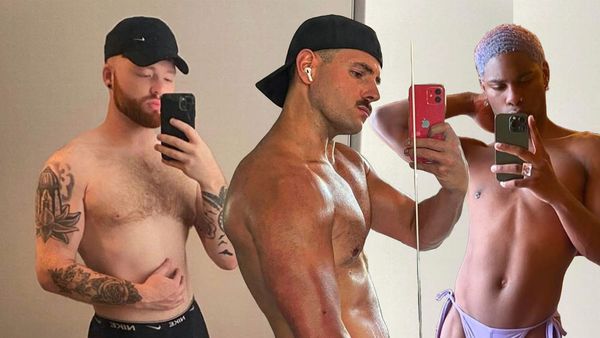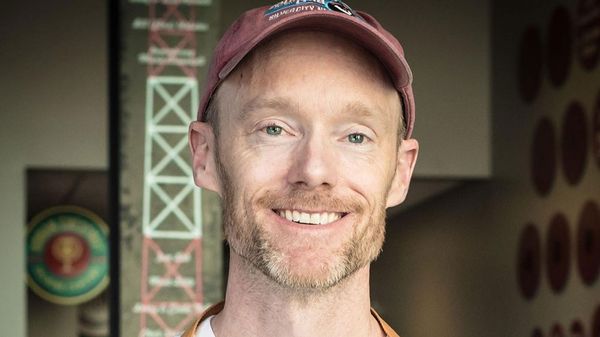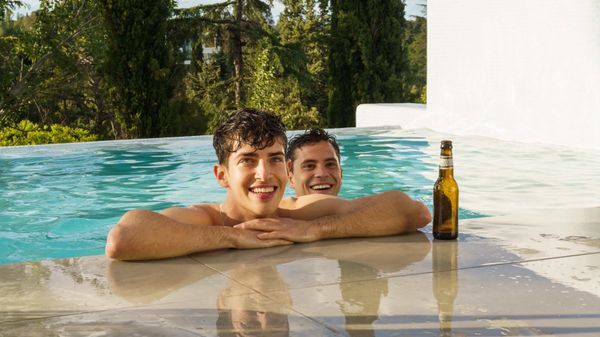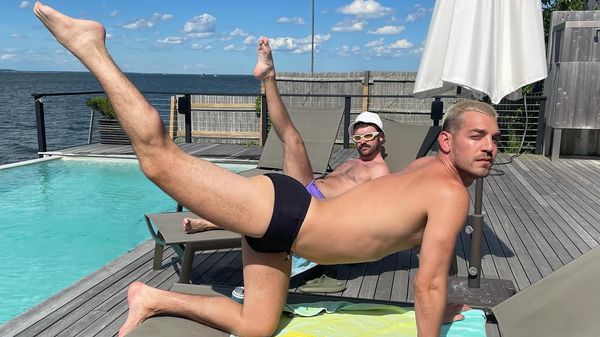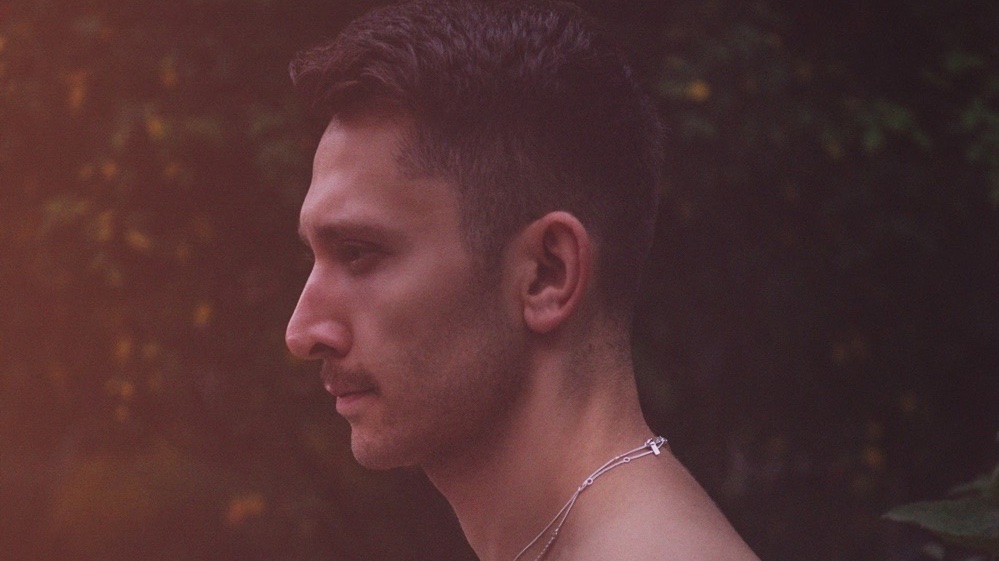
Jun 27
EDGE Interview: Out Actor Ryan Ali Just Started his Career in Hollywood and it's Going to be Big
Timothy Rawles READ TIME: 6 MIN.
The tides of the Hollywood landscape have turned for openly gay newcomers like Ryan Ali. In the past, talented and handsome gay actors like himself hoping to make it big were often hidden away in the closet for the length of their careers. To emerge meant being ignored by casting agents and the loss of leading roles. But Ali isn't going to succumb to the unwritten rules of old Hollywood. "I'm definitely into men," he says confidently in our phone interview for EDGE.
The L.A.-based actor's new movie "Queen Tut" won't be in theaters but it is better than most dramatic offerings landing in cinemas these days. That's mostly due to the strong performances from leads Ali and Alexandra Billings.
Ali plays Nabil, a questioning young Egyptian man who moves to Canada with his father and begins to bond with a trans woman named Malibu (Billings). Her nightclub is scheduled for demolition despite her best attempts to save it. Together the newfound friends help each other with breakthroughs; Nabil with his identity and Malibu with her denial of generational progress.
Born in Syria, Ali immigrated to Montreal when he was three. His family would travel back and forth between countries throughout his childhood eventually settling in Montreal when he was 18. He went to school for engineering because it was "what my parents came here to do." But acting was always on his mind. He managed to get a part-time job and still do his studies while actively searching for roles in theater.
"And doors were opening for me in a way that I felt was encouraging, and then came the first time I had to choose between an engineering exam and my very first day on set for anything ever," he says. "It was a very difficult decision, but I ended up choosing acting and I think that was the moment I knew that if it came down to it, I would choose acting over engineering."
After two-and-a-half years in academia, Ali dropped out. The decision may have been difficult since he had nothing to fall back on, but armed with tenacity, youth, and intelligence, Ali could do anything he wanted if it came down to that. In school, he would see people in their 50s attending lectures which got him questioning what it meant to live in the here and now. He asked himself what he really wanted.
"The answer was very, very clear for me," he says. "I would wake up at 5 a.m. to go on a shoot with no problem. I would wake up early. I would warm up. But try to get me into a lecture for math at 10 a.m. and I would have trouble getting there."
But what about being gay? The climate for gay actors may have changed for the better in the last decade, but it's still an unspoken factor.
"It's definitely something that I had to tackle on a personal level even before this movie was a thing or came my way at all," he explains.
Casting for "Queen Tut" was a challenge because the main character is Egyptian, a culture that denounces homosexuality. Still, they had to cast someone of that background, gay or straight; that is who the character Nabil is. Any actor would be putting themselves at risk playing the part.
"It's still someone that's sort of outing themselves in the Arab world, you know, to participate in a movie like this," Ali explains. "It could be looked at as an act of rebellion. It can be frowned upon. For me, I enjoy drag. There were so many themes in it that I thought were really, really important. I know so many people in the Middle Eastern community that are queer."
"And, and it's still new, I would say in our community – in the Arab world – not that it's new, you know, for people to be queer, but rather just new to be able to have conversations openly about it or with our parents and things of the sort," he continued. "So, I was able to infuse a lot of my own personal take on it and my own personal experiences into this movie, which I think a lot of people did. Alexandra Billings offered so much to this film, which I think ultimately made it what it is. And that was, I think, why our movie came out this strong, and people are really appreciating it, because of all that authenticity in it."
Billings' and Ali's chemistry went beyond the camera, he says. He had heard of her before filming started but the moment he met her he understood everything she stood for, and he is still processing his experience. "She is incredible," Ali says. Billings saw the passion Ali had for the story and how focused he was to make it as truthful and impactful as he could.
